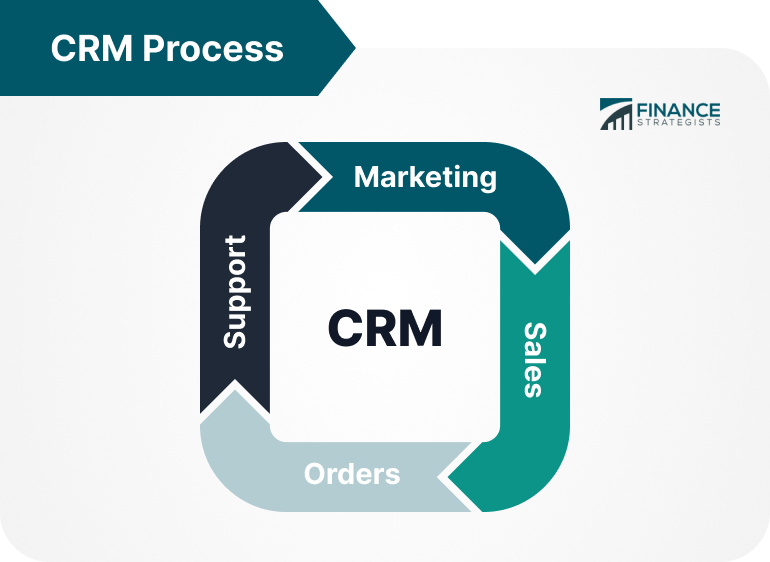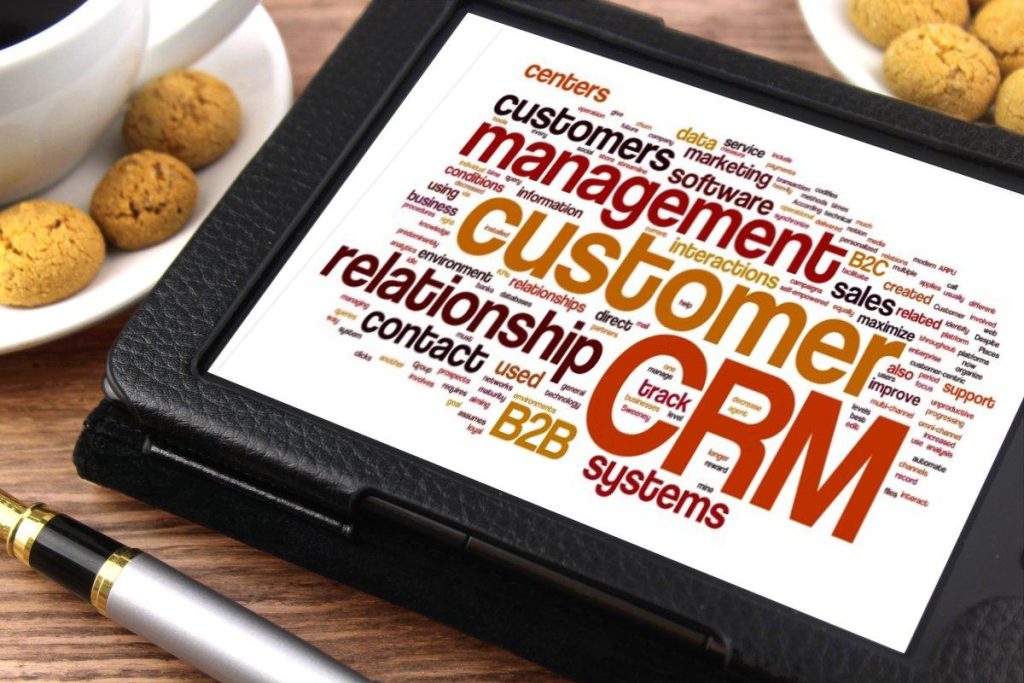CRM, or Customer Relationship Management software, has become vital for businesses of any scale and industry. Whether running a startup or overseeing a corporation, an efficient CRM solution can simplify your operations, increase sales, and improve customer satisfaction.
However, given the multitude of choices in the market, selecting CRM software can be daunting. To assist you in making an educated choice, we have assembled a compilation of 12 features to consider when evaluating CRM solutions.
12 Features of CRM Solutions
There are many CRM Solutions Available in the market. To get the best CRM software look for the following features:
Contact Management
An effective CRM system should offer a range of contact management capabilities enabling you to store and arrange all customer information within a centralized database. This CRM SaaS encompasses contact details, interaction histories, notes, and additional relevant data. It also helps in removing repetitive data and redundancy issues that come with unorganized databases. This contact management software helps in keeping all the customer contact databases in one place, which can ease the process of interaction with customers.
Sales Automation
It is beneficial to seek a CRM solution to automate sales tasks like lead generation, email follow-ups, and task reminders. This helps in making the sales and marketing of products seamless and easy. By leveraging this feature, your sales team can enhance their organization and concentrate on finalizing deals. It not only keeps the consistency but also helps in building a strong communicative network with customers. It also has a task reminder feature that helps employees to remember tasks on time. CRM consulting services can help you find the best one that suits your needs. Statistics show 20% of the CRM market is owned by salesforces.
Reporting and Analytics
The ability to analyze and generate reports is an aspect of CRM software. It goes beyond assessing sales performance and pinpointing areas of strength and improvement. It also provides insights into customer behavior, enabling businesses to refine their marketing and engagement strategies. By staying updated with industry trends, companies can maintain an edge. This feature empowers businesses to make decisions based on data leading to enhanced profitability and overall performance.
Integration Capabilities
When selecting a CRM system, it is vital to consider its ability to integrate with tools and software. A good CRM should smoothly blend with existing systems boosting productivity and avoiding data isolation. This eliminates the need for data input saving time and resources while enabling teams to make well-informed decisions using a comprehensive understanding of customer information. You can ask for CRM consulting from a professional, or you can compare different CRM softwares on comparison websites for a better understanding.
Mobile Access
In this paced era, it is crucial to have access to your CRM through mobile devices. It would be beneficial to search for a CRM that provides an application or a web interface that adapts well to screen sizes enabling your team to access vital information while moving. As per recent statistics, 50% of employees have improved productivity by using CRM software on mobile. This provides them with the flexibility of using the software on the go and working from anywhere. Employees are able to generate reports and implement strategies from locations other than their offices.
Customization Options
Every business has its ways of working and operating. A CRM that can be customized according to your requirements would be ideal as it allows you to tailor the system accordingly, resulting in levels of productivity and efficiency. It has been found that more than 150,000 people use CRM software for different purposes. Customization allows them to have the freedom of making choices about the features of their use.
Lead Management
Good CRM development companies should provide functionalities to help sales teams effectively and accurately manage leads. Lead tracking is crucial as it allows sales teams to monitor the customer journey from the first contact to conversion, ensuring no potential opportunities slip through the cracks. Lead scoring is a method that helps sales teams prioritize leads, by considering their engagement, interest, and potential, for conversion. Doing so enables sales teams to allocate their time and resources efficiently.
Customer Support Tools
To enhance the efficiency and quality of customer support, it is important to prioritize CRM solutions that offer robust customer support features. Knowledge base integration serves as a hub for valuable information empowering customers to find solutions independently. This leads to faster response times, increases customer satisfaction, and streamlines the overall support process. There are CRM Software Development Services that have these features, and businesses can establish a foundation for delivering service, resolving issues successfully, and cultivating long-term customer loyalty.
Workflow Automation
Workflow automation plays a role in helping businesses boost efficiency and minimize errors in their day-to-day operations. Implementing a CRM solution allows for task automation, freeing up time for more strategic activities. This ensures consistency in executing tasks. It also reduces the likelihood of human errors. Having workflows throughout the organization fosters collaboration, communication, and information sharing. The workflow automation feature helps managers to track employee progress and optimize processes to increase the efficiency of work.
Security and Data Privacy
When choosing CRM solutions, it is crucial to give priority to security features. Look for a CRM system that provides access controls, data encryption, and compliance with data privacy regulations like GDPR or CCPA. Having a secured access control gives the user confidence that their data is safe and cannot be accessed by any unauthorized person. By incorporating these measures, we can establish an environment for customer information, safeguard the company against risks and strengthen customer trust. Ultimately this will facilitate long-term relationships. Ensure success.
Scalability
For businesses aiming to grow, scalability becomes essential as it enables the management of increasing data volumes and adding users. As the company grows, CRM with scalability helps in implementing the inevitable change that comes with an increase in employees. A CRM system, with scalability, should make collaboration and customization seamless, catering to business processes. Scalability helps in adapting and modifying features to meet your needs. By choosing a CRM that can grow alongside your business, you can safeguard your operations for the future. Ensure workflows.
User-Friendly Interface
As per professional CRM consultants, CRM that is easy to use helps users get up to speed quickly, boosts efficiency, and reduces the need for training. When the team actively participates in the trial phase, it becomes easier to pinpoint any hurdles and areas that may require training or customization. Making informed decisions based on these observations leads to adoption rates and successful CRM system implementation. CRM with a user-friendly interface helps in providing feedback and changing features as per the needs of the business.
Conclusion
Choosing the CRM solution is a decision that can greatly impact the success of your business. To ensure you find a CRM that suits your requirements and aids in developing customer relationships, boosting sales, and driving business growth, it’s important to consider these 12 features. Take the time to assess a proper CRM consultancy, read user reviews, and engage with your team to make an informed decision. Keep in mind that an implemented CRM system has the potential to revolutionize your business, so investing in one will yield long-term benefits.



